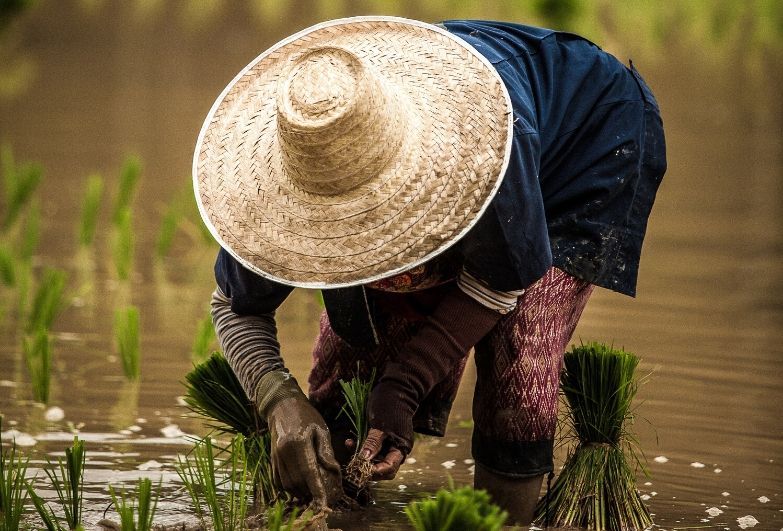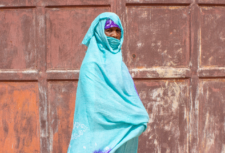Disclaimer: This article is more than 3 years old, and may not include the most up-to-date information or statistics. Please verify information with more recent sources as needed, and if you have any questions contact our Press Office.
A recent announcement from the European Commission could spell the start of a new normal for corporate responsibility writes Claire Ivers, Senior EU Adviser at Anti-Slavery International.

13 May 2020
We are on the verge of a major opportunity to put people and the planet before profit, and to make a lasting positive impact on the 16 million people in forced labour in the private sector.
Two weeks ago on April 29th, the European Commissioner for Justice, Didier Reynders made a milestone announcement for corporate responsibility. The Commissioner publicly pledged that the European Commission will introduce a proposal for legislation in 2021 to require companies operating within the EU to prevent, and reduce the risk of, negative human rights and environmental impacts to workers and communities in their operations and supply chains through mandatory due diligence. This means EU companies could be legally responsible for preventing forced labour in their supply chains.
The announcement came as a result of years of vigorous campaigning by civil society organisations, including Anti-Slavery International, trade unions, responsible businesses, investors as well as calls by MEPs and politicians and backed by various legislative and political developments in EU member states.
As the world’s largest single market, the EU has considerable potential to take effective action to prevent forced labour in global supply chains. Over 16 million people are estimated to be in forced labour in the private sector, which includes those producing the materials in goods or products exported to the EU, as well as products produced in the EU. For example wine from France, seafood from Thailand, minerals for technology from the DRC, and cotton from Turkmenistan.
The Covid-19 crisis has sharply exposed the need for this change. Global supply chains have been proven to be inherently fragile, creating vulnerabilities for workers, communities and businesses. Facing disruption in supply and demand, global retailers in the garment industry took knee-jerk decisions and unilaterally cancelled contracts with suppliers. This has led to non-payment or delayed wages to workers, and exacerbated their poverty. In Bangladesh alone, two million garment workers – approximately half of all garment workers in the country, of whom the majority are women – were furloughed or laid off as Covid-19 took hold. Without adequate state support mass unemployment, even if temporary, means that major sections of the global population are at greater risk of exploitation in forced labour and other modern forms of slavery.
Meanwhile, other companies have behaved responsibly during the Covid-19 crisis, ensuring their actions do not exacerbate vulnerabilities for workers in their supply chains. Mandatory human rights and environmental due diligence would level the playing field and require all companies to meet the same standards of responsible business, preventing undercutting by those businesses profiting from the exploitation of workers.
The legislation we are calling for will change the state of play – all major companies and financial institutions operating in the EU, or providing goods and services in the EU, will be mandated to demonstrate they have taken action to identify forced labour risks and taken preventative action. If they fail do to so, they will be held legally liable and victims of forced labour will be able to demand justice and remedy. Without this it remains difficult, if not impossible, for EU consumers to guarantee they are purchasing slavery-free goods.
Reynders’ has shown commendable leadership with his announcement in April. As European Parliament Vice-President, Heidi Hautala, has said “The long-awaited commitment from the Commissioner opens up an opportunity for all to start defining how such ground-breaking legislation should look like”. Indeed, we now need to ensure that the legislation proposed is robust and fit for purpose. The European Parliament’s Legal Affairs Commission will soon start work on its long-awaited Corporate Accountability and Due Diligence report, which will be an important contribution to the future shape of the law. Germany, which will assume the rotating Presidency of the EU in July, should also place this issue high on the its Presidency agenda.
Anti-Slavery International has laid out our vision of the legislation to ensure it is effective in addressing forced and child labour, including: requirements in line with the UN Guiding Principles on Business and Human Rights and the OECD Guidance for Multinational Businesses; the involvement of workers, trade unions and affected communities at all stages of the due diligence process; statutory oversight and enforcement mechanisms, an effective liability framework and sanctions, including exclusion from states’ public procurement mechanisms; and access to justice and remedy.

Diligence in global supply chains
Our vision of proposed mandatory due diligence legislation for the EU.
As the European Commission prepares to launch public consultations on the legislation, it should consult with civil society, trade unions and affected communities. In particular, the Commission must consult with organisations based in the global south, and ensure that the legislation responds to the realities faced by people on the ground where the majority of corporate abuses occur. The voices, knowledge and perspective of people affected by modern slavery and people vulnerable to labour exploitation and modern slavery must be central to the design and implementation of the legislation.
Across the world, we are seeing calls to build back better after Covid-19. The EU and its member states have an opportunity to tangibly work towards this by introducing ambitious and effective mandatory human rights and environmental due diligence legislation. Anti-Slavery International is looking forward to working with our allies across civil society, government, business and the EU to realise this new normal that values people and planet.
For further information please contact Chloe Cranston, Business and Human Rights Manager: c.cranston@antislavery.org





